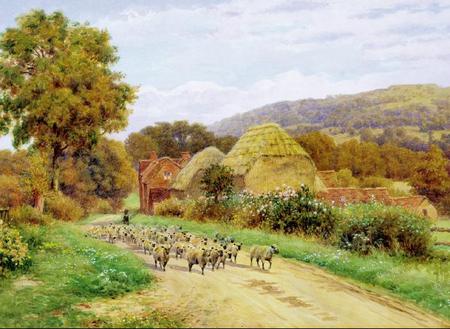UK regular Ofcom has told incumbent BT that it must reduce the wholesale prices it charges ISPs for delivering broadband services to primarily rural areas. The regulator said that the price reduction of 12 per cent below inflation will make it more affordable for ISPs to offer service to remote areas. It also said that it expects the move to promote competition between ISPs, leading to cheaper prices to consumers. It could also lead to faster speeds, as ISP’s will be able to purchase more capacity from BT Wholesale without increasing costs.
July 20, 2011

UK regular Ofcom has told incumbent BT that it must reduce the wholesale prices it charges ISPs for delivering broadband services to primarily rural areas.
The regulator said that the price reduction of 12 per cent below inflation will make it more affordable for ISPs to offer service to remote areas. It also said that it expects the move to promote competition between ISPs, leading to cheaper prices for consumers. It could also lead to faster speeds, as ISP’s will be able to purchase more capacity from BT Wholesale without increasing costs.
The price reduction is expected to benefit around three million homes and businesses in rural parts of Scotland, Wales and Northern Island, as well as the South West of England and other areas. The change will come into effect in mid-August 2011 and will last until 31 March 2014.
Ofcom said the charge controls only apply to ADSL, and not the faster ADLS2+, in order to encourage BT itself to invest upgrading exchanges to the faster DSL variant.
“Ofcom’s charge control decision is good news for consumers living primarily in rural areas,” commented Ovum lead analyst Matthew Howett. “These are parts of the country where only BT is present, largely because of the comparatively higher cost of providing service to these customers. As a result, Ofcom has intervened to stimulate competition by reducing the amount internet service providers have to pay BT.”
In related news, cable supplier Virgin Media announced that its high-speed 100Mb cable broadband was now available to 25 per cent of the UK population.
“Ofcom’s charge control decision is good news for consumers living primarily in rural areas. These are parts of the country where only BT is present, largely because of the comparatively higher cost of providing service to these customers. As a result, Ofcom has intervened to stimulate competition by reducing the amount internet service providers have to pay BT.
“Ofcom expects this reduction at the wholesale level to be passed onto the consumer in the form of lower retail prices. Alternatively, internet service providers may be in a position to offer faster broadband services to these customers as they will be in a position to rent more capacity from BT.
“Elsewhere in the country BT faces competition from a number of alternative operators who have unbundled the local loop. As a result of this competition, charge controls on BT have been relaxed in these areas. By exempting faster broadband speeds from the new charge controls should act to incentivise BT to invest in new technologies to deliver faster speeds which is set to further benefit consumers living in more rural areas, and helping to reduce the digital divide.”
About the Author(s)
You May Also Like








.png?width=300&auto=webp&quality=80&disable=upscale)


_1.jpg?width=300&auto=webp&quality=80&disable=upscale)


.png?width=800&auto=webp&quality=80&disable=upscale)